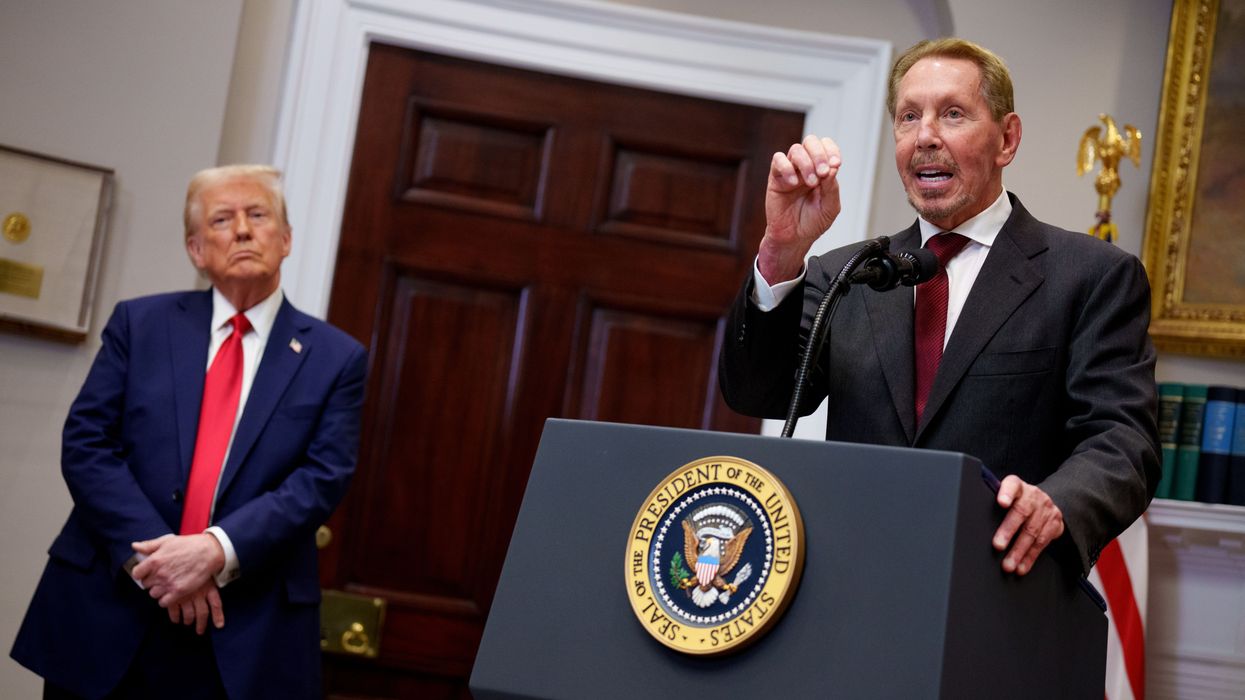February, 26 2009, 09:08am EDT

Nat'l Renewables Standard Could Save Consumers $94 Billion
WASHINGTON
Consumers could save as much as $94 billion on their electricity and natural gas bills by 2030 if Congress enacted the national renewable electricity standard recently introduced by Reps. Edward J. Markey (D-Mass.) and Rep. Todd R. Platts (R-Pa.). That's according to a preliminary analysis by the Union of Concerned Scientists (UCS), which used a modified version of the Department of Energy's National Electricity Modeling System (NEMS) for its analysis. A subcommittee of the House Energy and Commerce Committee will hold a hearing on the bill, H.R. 890, at 9:30 a.m. today in Room 2322 of the Rayburn House Office Building.
The Markey-Platts bill would require utilities to obtain 25 percent of their electricity from renewable sources, such as wind, solar, bioenergy or geothermal, by 2025. Twenty-eight states and the District of Columbia already have state standards.
UCS' preliminary analysis of the 25-percent-by-2025 standard -- unveiled yesterday in Las Vegas at the nation's largest renewable energy conference -- concluded that consumers across the country would benefit. "There aren't winners and losers. All consumers would save, including those in the Southeast," said Alan Nogee, UCS' Clean Energy Program director. "Our analysis shows that ratepayers in the Southeast collectively would save more than $4.5 billion by 2025."
The UCS analysis is the latest in a long line of studies conducted over the last decade -- including several by the federal government -- that found a federal renewable electricity standard is a cost-effective method to spur clean energy use and lower consumer utility bills. According to UCS' calculations, $24 billion of the $94 billion saved by 2030 would go to industrial electricity customers, while commercial and residential users would save more than $40 billion and $29 billion respectively.
Analyses by the federal government have come to similar conclusions. In fact, more than 20 economic analyses of national standard proposals over the last decade have found that a federal renewable electricity standard is achievable and affordable, despite the electric utility industry's claims to the contrary. For example, a 2007 Energy Information Administration (EIA) study, which used very pessimistic assumptions, found that consumers would save $2 billion on electricity and natural gas bills from 2009 to 2030 under the 25-percent-by-2025 standard.
In addition to saving energy consumers money, UCS' preliminary analysis indicates that by 2025 the Markey-Platts standard would cut heat-trapping carbon dioxide emissions by 284 million metric tons, the equivalent of cutting pollution from 46.4 million cars.
"We all know we need to transform our energy system into a cleaner, more reliable one," said Marchant Wentworth, a Washington representative with the UCS Clean Energy Program. "This new analysis shows we can move toward a clean energy future and save people money. It's not an either-or proposition."
The Union of Concerned Scientists is the leading science-based nonprofit working for a healthy environment and a safer world. UCS combines independent scientific research and citizen action to develop innovative, practical solutions and to secure responsible changes in government policy, corporate practices, and consumer choices.
LATEST NEWS
'Another Backdoor Deal'? Billionaire Trump Ally Larry Ellison at Center of TikTok Spin-Off
"TikTok has officially been sold to the worst people on Earth," wrote one activist, "and no this is not an Onion headline."
Dec 19, 2025
A group of investors including Oracle—a software giant led by billionaire Trump ally and GOP megadonor Larry Ellison—is set to control TikTok's US operations under a spin-off agreement formalized Thursday, raising concerns of undue political influence on the short-form video app used by around 170 million Americans.
TikTok's Chinese owner, ByteDance, signed a binding deal under which Oracle, the private equity group Silver Lake, the Abu Dhabi-based firm MGX, and other investors will hold an 80.1% stake in the newly formed US TikTok entity.
NPR reported that under the agreement, "TikTok's US algorithm will be retrained with only Americans' data" and "content moderation rules around what is permitted and what is not will be set by the new investor-controlled entity."
The deal, which stems from an executive order that President Donald Trump signed in September, averts a TikTok ban in the US.
Last year, former President Joe Biden signed widely criticized legislation that would have banned the platform in the US if ByteDance did not sell it. The measure was inserted into broader legislation that included billions in military aid for Ukraine, Taiwan, and Israel.
US Sen. Elizabeth Warren (D-Mass.), who voted for the package that included the potential TikTok ban, called for close scrutiny of the new agreement. Warren pointed to the Trump administration's approval earlier this year of the merger of CBS News owner Paramount and Skydance—a company run by David Ellison, the son of Larry Ellison.
"First Paramount/CBS and now TikTok. Trump wants to hand over even more control of what you watch to his billionaire buddies," Warren wrote in a social media post on Thursday. "Americans deserve to know if the president struck another backdoor deal for this billionaire takeover of TikTok."
Evan Greer, director of Fight for the Future, wrote in response to the deal that "TikTok has officially been sold to the worst people on Earth and no this is not an Onion headline."
Keep ReadingShow Less
Rights Groups Warn FBI Probe of Anti-ICE Activity Portends New Crackdown on Lawful Dissent
"People who are entirely innocent of any wrongdoing can be subjected to surveillance or investigation," said one critic of the FBI memo. "That imposes stigma."
Dec 19, 2025
Rights groups are expressing alarm over new reporting about the FBI carrying out nationwide anti-terrorism probes against activists protesting against federal immigration enforcement officers.
The Guardian on Friday published a report detailing an internal FBI document that outlines "criminal and domestic terrorism investigations” into “threats against immigration enforcement activity” in 23 regions across the US.
The FBI document, which was dated November 14, is a response to National Security Presidential Memorandum-7 (NSPM-7), a directive signed by President Donald Trump in late September that demanded a “national strategy to investigate and disrupt networks, entities, and organizations that foment political violence so that law enforcement can intervene in criminal conspiracies before they result in violent political acts."
The FBI report cites two violent attacks against Immigration and Customs Enforcement (ICE) facilities in Texas to argue that there has been "an escalation in violence compared to past attacks, which primarily resulted in property damage."
Additionally, the FBI report directs agents to look for "indicators" that an anti-ICE activist may be planning to carry out an attack on immigration enforcement officials, including "stockpiling or distributing firearms," as well as using encrypted messaging apps and "conducting online research" about immigration agents' movements and locations.
The last two of these three "indicators" are raising red flags for rights groups, which are warning that they could be used as the pretext for mass infringement of constitutional rights to speak freely and protest peacefully.
Rachel Levinson-Waldman, director of the Liberty and National Security Program at the Brennan Center for Justice, told the Guardian that the FBI appeared to be treating US citizens with suspicion for engaging in activities protected by the First Amendment.
"It is not illegal to do online research about the publicly available movements of government officers or to communicate through encrypted apps like Signal or WhatsApp," she said. "While the document refers to using encrypted communications to ‘discuss operational planning’, that term is undefined and ambiguous, leaving it open what kinds of conversations might draw FBI scrutiny."
Hina Shamsi, director of the ACLU National Security Project, expressed concern to the Guardian that the FBI document is "infused with vague and over-broad language, which was exactly our concern about NSPM-7 in the first place."
"It invites law enforcement suspicion and investigation based on purely First Amendment-protected beliefs and activities," Shamsi explained. "People who are entirely innocent of any wrongdoing can be subjected to surveillance or investigation. That imposes stigma. It can wrongly immesh people in the criminal legal system."
Adam Goldstein, vice president of strategic initiatives at the Foundation for Individual Rights and Expression (FIRE), published an analysis on Thursday that criticized a recently unearthed memo from Attorney General Pam Bondi that fleshed out the concepts laid out in NSPM-7.
In particular, Goldstein argued that Bondi's memo risks using law enforcement to investigate people based on their political ideologies rather than on suspicion that they are engaging in criminal activity.
"People who conspire to engage in actual criminal behavior should be investigated, arrested, and prosecuted," Goldstein wrote. "But these memos aren’t narrowly focused on groups that exist for the purpose of ideologically motivated violence, which act to bring about violence; they broadly condemn particular viewpoints and lay a foundation for a government watchlist of American groups which share those viewpoints."
Keep ReadingShow Less
'Do Not Become Inured': Death Toll From Trump Boat Strikes Tops 100 After Latest Murders
"This is premeditated killing outside of armed conflict. We call that murder," said one expert.
Dec 19, 2025
The US military on Thursday bombed two vessels in the eastern Pacific, killing at least five people and pushing the death toll from the Trump administration's lawless military campaign in international waters above 100.
Thursday's strikes marked the third time this week that the US military has bombed boats operated by people accused, without evidence, of smuggling drugs. None of the dozens of strikes that have now killed at least 105 people since early September have been authorized by Congress, and legal experts at home and abroad have said the attacks clearly constitute murder.
Brian Finucane, a senior adviser with the US Program at the International Crisis Group, warned against allowing the Trump administration to normalize and escape accountability for its extrajudicial killings.
"The lawless killing spree continues. Do not become inured," Finucane wrote on social media. "This is premeditated killing outside of armed conflict. We call that murder."
As with previous attacks, the Trump administration attached a short video clip to its announcement of the Thursday strikes, which came amid mounting fears that President Donald Trump is dragging the US into an illegal war with Venezuela and possibly other South American countries.
On Dec. 18, at the direction of @SecWar Pete Hegseth, Joint Task Force Southern Spear conducted lethal kinetic strikes on two vessels operated by Designated Terrorist Organizations in international waters. Intelligence confirmed that the vessels were transiting along known… pic.twitter.com/CcCyOgYRto
— U.S. Southern Command (@Southcom) December 19, 2025
But US Defense Secretary Pete Hegseth is refusing to release footage of at least one of the deadly strikes that he authorized with a verbal order to "kill everybody" onboard the targeted vessel.
"We’re not going to release a top secret, full, unedited video of that to the general public,” Hegseth told reporters earlier this week, referring to footage of a September 2 attack in the Caribbean that killed the survivors clinging to wreckage from an initial strike.
The ACLU's Jeffrey Stein and Christopher Anders wrote Thursday that "if a president can murder civilians at sea and keep the legal justifications secret, we should all be concerned."
"The harm is even worse when basic factual evidence, such as full videos and orders, is also hidden from the American people," they continued. "Transparency can’t wait while the government murders more people. That’s why we’re asking everyone to send a message to their representatives in Congress urging them to act now. Demanding answers, insisting on public hearings, and refusing to accept secret law as a license to kill, is how we can all help stop these unlawful strikes and defend the basic principle that no one—not even the president—is above the law."
The latest bombings came a day after House Republicans blocked a pair of resolutions aimed at stopping the Trump administration's unauthorized boat strikes and march to war with Venezuela.
In the Senate, Ruben Gallego is pushing a new resolution that "orders the US Armed Forces to immediately cease hostilities against vessels in the Caribbean Sea and the eastern Pacific Ocean unless authorized by Congress."
"If the president believes the use of military force is necessary, he needs to come talk to Congress first and make that case. The decision to use military force is one that requires serious debate, and the power to declare war unambiguously belongs to Congress under the Constitution,” said Gallego. “As an Iraq war veteran, I know the costs of rushing into an unnecessary war and that the American people will not stand for it.”
But Trump insisted Thursday that he doesn't "have to" go to Congress before taking military action.
Asked if war with Venezuela is a possibility, Trump said, "I don’t rule it out."
Keep ReadingShow Less
Most Popular


